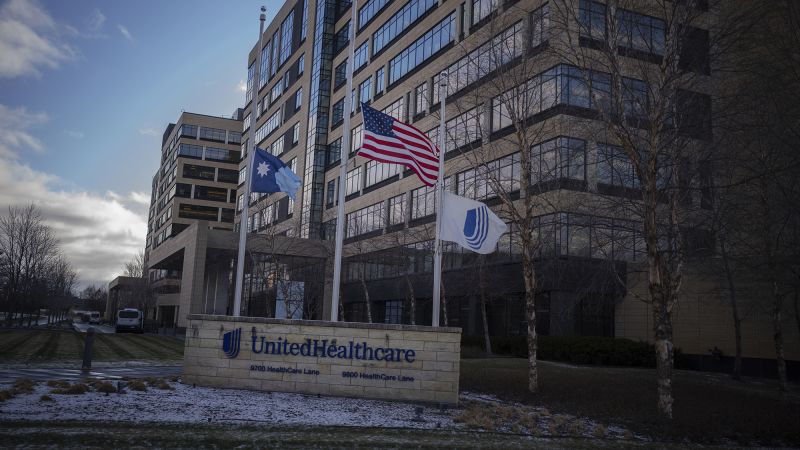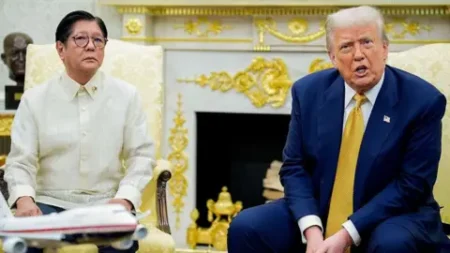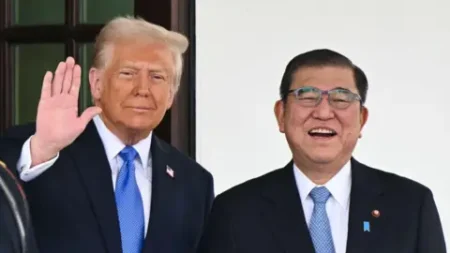UnitedHealthcare has initiated a legal battle against The Guardian and its parent company, filing a defamation lawsuit on Wednesday. This action stems from an article published in the U.S. edition of the British newspaper, which UnitedHealthcare asserts contained information known to be incorrect. The company alleges that The Guardian’s reporting aimed to exploit the assassination of its then-CEO, Brian Thompson, for sensationalist effect, amplifying a series of claims they deem fundamentally false.
The controversial article, which had been crafted by The Guardian’s American investigative team, was part of a broader series titled “Too Big to Care.” It detailed allegations that UnitedHealth Group, the parent company of UnitedHealthcare, enacted cost-cutting measures by offering financial incentives to nurses, with the intent of minimizing hospital transfers of nursing home residents. The piece, authored by investigative reporter George Joseph, cited a range of sources, including internal emails, documents, and interviews with over 20 present and former employees of the company, establishing a narrative that suggested such payments jeopardized necessary care by potentially preventing residents from qualifying for hospitals or receiving timely medical attention in emergencies.
In response to the article, the legal filing by UnitedHealth Group (including related entities like UnitedHealthcare Services and Optum), took shape in Delaware’s Superior Court. The lawsuit vehemently claims that The Guardian produced “knowingly false claims,” utilizing what UnitedHealthcare describes as “deceptively doctored documents” and “patently untruthful anecdotes” to back the report’s assertions. Furthermore, the complaint highlights that the publication was fully aware of the falsity of its claims when it went to print, asserting that The Guardian was “brazenly trying to capitalize” on the tragic circumstances surrounding Thompson’s death.
The Guardian, in turn, has issued a robust defense against these allegations, steadfastly standing behind the integrity of Joseph’s reporting. The publication emphasized in its public statements that the reporting is thoroughly backed by substantial documentation, including a mix of corporate and patient records, alongside publicly filed lawsuits, and comprehensive interviews, all collected over an extensive period of scrutiny. The Guardian denounced UnitedHealthcare’s lawsuit as an case of “outrageous” intimidation, suggesting that it is a move to suppress factual journalism regarding the controversial practice of covertly compensating nursing homes to reduce hospitalizations, especially among vulnerable patient populations.
Moreover, the tension between the two entities escalated when UnitedHealth Group issued a statement asserting that the report relied on anecdotal evidence rather than concrete facts. The company referenced a prior investigation carried out by the Justice Department which, according to them, found substantial factual inaccuracies in the allegations put forth in the article. A spokesperson for UnitedHealth criticized The Guardian for allegedly creating a narrative without engaging truthfully with the core facts of the situation.
Interestingly, despite the significant public fallout, The Guardian has stated that it has yet to receive any formalized request from UnitedHealthcare for a correction or retraction concerning the report. This aligns with the publication’s assertion about the veracity of its claims and the sources used in developing the critical narrative surrounding UnitedHealthcare’s business practices.
Legal representation for UnitedHealthcare comes from Clare Locke, a law firm recognized for its involvement in defamation suits against various media outlets. Notably, the firm has previous ties to Project Veritas, with Jered Ede, a partner in the firm and chief legal officer for Project Veritas, taking a lead role in the UnitedHealthcare lawsuit. This connection highlights the growing intersection of media, corporate power, and the legal battles that ensue from journalistic endeavors to seek transparency in the corporate sphere, particularly in industries as crucial as healthcare.
As this legal confrontation unfolds, it raises questions about the tensions that exist between major corporations and media outlets, illustrating the potential risks involved when journalism seeks to expose perceived misconduct or mismanagement in large healthcare systems. The outcome of this case could have far-reaching implications not only for the involved parties but also for the broader discourse on media freedom and accountability in reporting on corporate practices.











